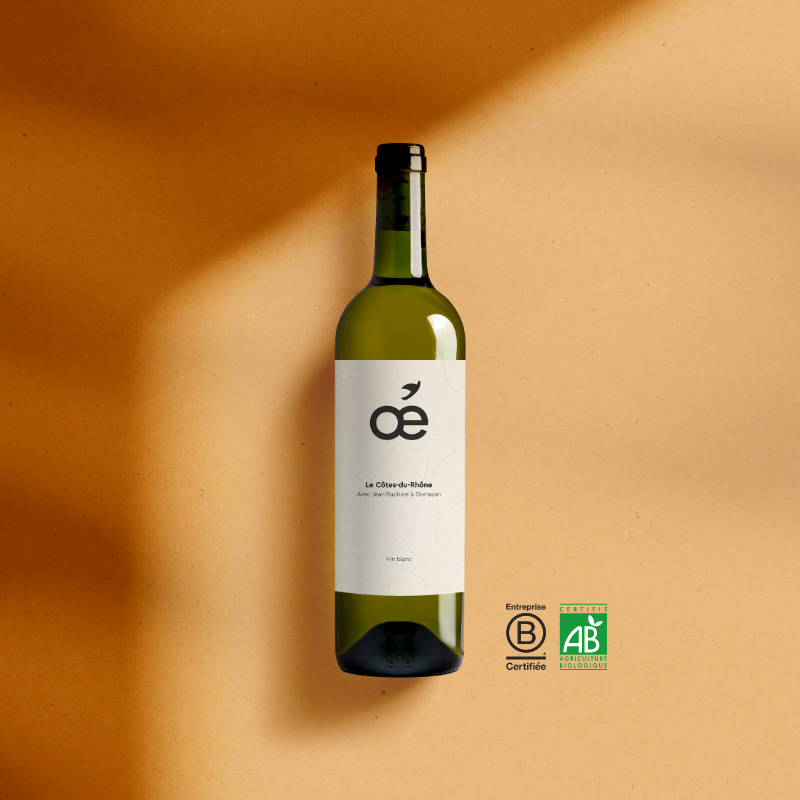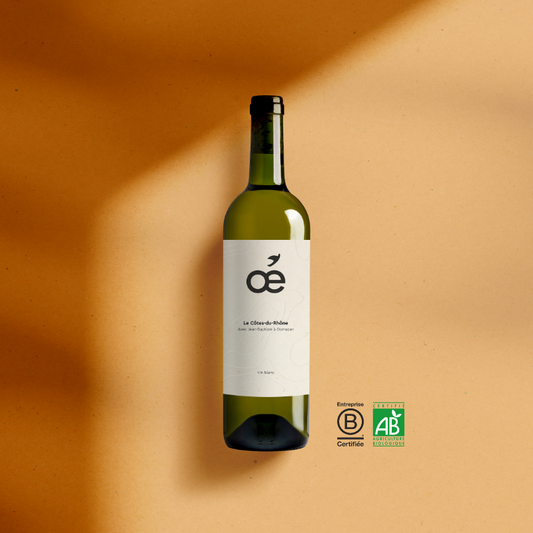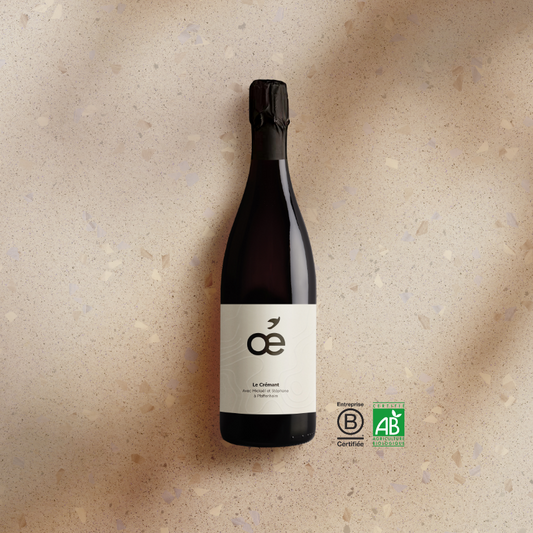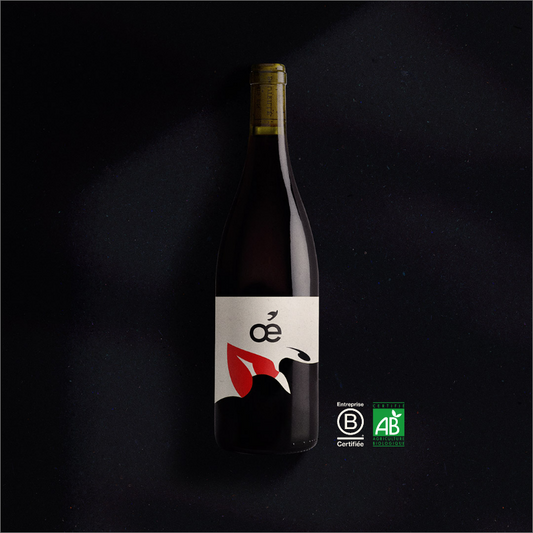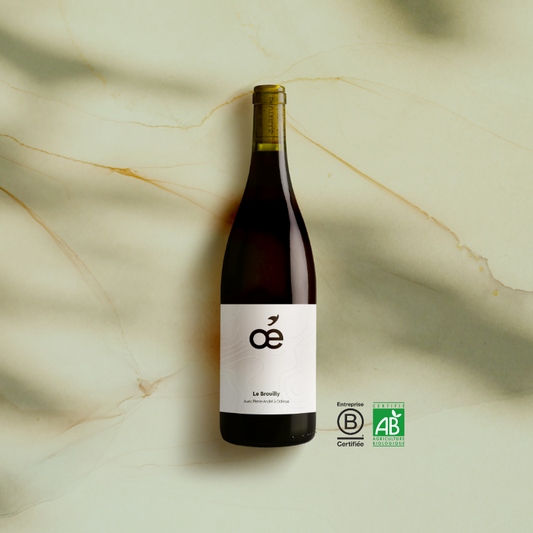
Let's continue to imagine 2040, let's reflect together on this beverage in your hands: in your opinion, what was the impact of French viticulture on our environment at the beginning of the 2020s... and what is it in 2040?
In 2021, viticulture was 4% agriculture and 20% pesticides. In 2040... all the agricultural plots are organic and biodynamic, biodiversity is gradually regaining its rights and everyone works their land in accordance with the living. Reusing the bottles allowed us to save 33% of water compared to a new manufactured bottle, to reduce the energy consumed by 76% and to emit 79% less greenhouse gases. It's not bad, is it ?
The air of 2040 is less polluted and the soils are more fertile. We have managed to move the lines in 20 years. We have learned to live with nature, in cooperation with it, and no longer in opposition. Biodiversity is gaining ground in cities, driven away for too long by galloping concrete. Species once threatened with extinction are gradually returning to their natural habitats and reproducing there peacefully, considerably limiting the loss of biodiversity.
And to think that it all started with choices. Courageous choices that helped start the movement, and inspired all of you to do the same.
At Oé, the choice was to create a 100% responsible bottle, from content to container. With a carbon negative cap from a responsible FSC-certified forest; 100% recycled and FSC-certified labels, vegetable-based inks, a 550g bottle without cap and returnable, and “bulk” wine in local grocery stores. All of these choices have become the norm. And in 20 years, the butterfly effect has unfolded.
In the 2020s, we wanted to encourage this awareness in all aspects of daily life. For many sectors, the road was still long! Some examples ?
- Transport accounted for ⅓ of France's greenhouse gas emissions! What about shared means of transport? Decentralized jobs to unclog cities and allow the reduction of travel time and the revitalization of isolated territories. What transport should be preferred?
- Energy was less than 20% of electricity production in France provided by renewable energies (hydraulic, solar, wind). A power outage and our way of life collapsed: household appliances, means of communication, but also banks and more sensitive infrastructures… and yet renewable energy was everywhere without our knowing how to use it. Would we still be so dependent?
- Fashion was the world's third most water-consuming industry after the wheat and rice industry. Most of us were unaware that there were people behind these products, and that they needed to make a decent living from their work. Buying a garment from local producers working with quality materials became an ecological and political act. The fashion industry had to reinvent itself.
- Food was a very important issue. Our plates were dominated by meat. Yet the alternatives were numerous: flexitarianism, vegetarianism, locavorism, veganism...
- Democracy : 2 out of 3 French people thought that democracy was working badly in France. Reports on the decline of freedoms multiplied and people wondered how to restore it or by what governance to replace it.
That's it, do you visualize these 20 years that have changed everything? In our way of being and consuming, how have we innovated?
Find some leads in this compilation of solutions that we have concocted for you! And let us know your thoughts and ideas by writing to us at hello@oeforgood.com !
